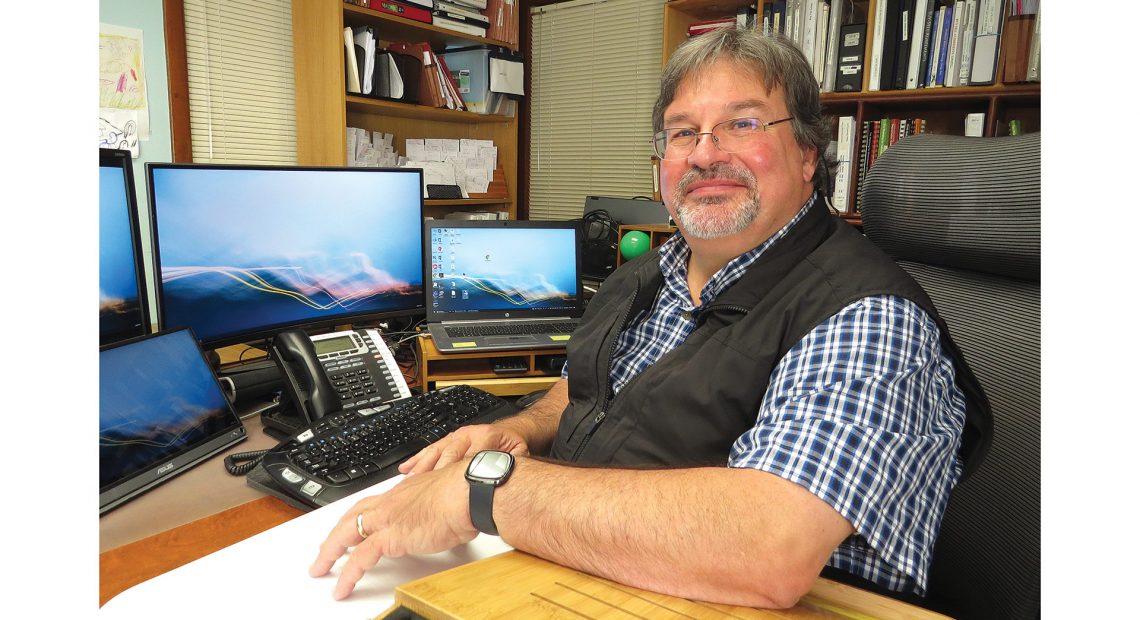Doing the Math
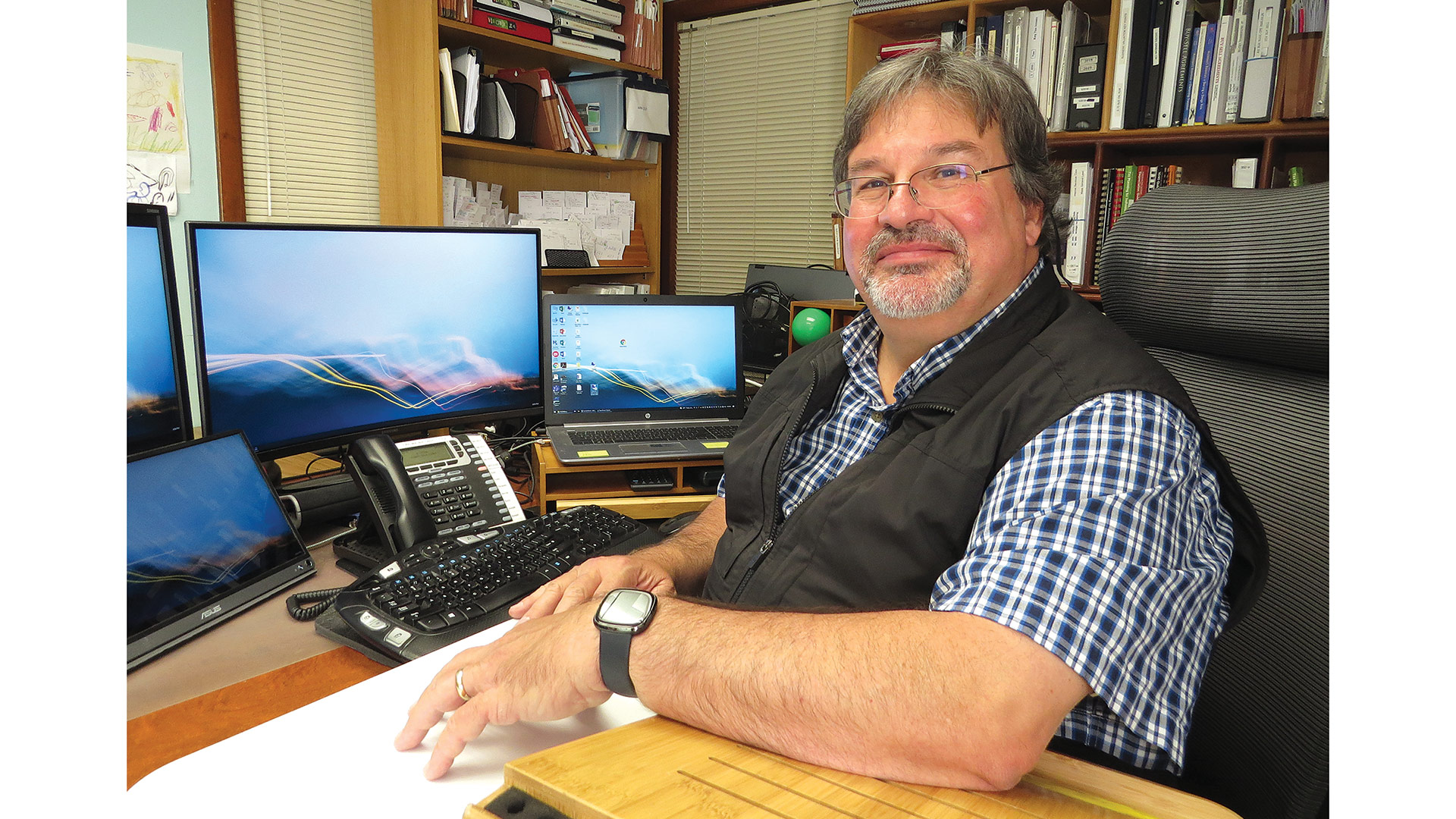
Joe Bova compared the past 18 months in the accounting profession to “trying to sail a ship while you’re building that ship.”
For accountants, the past 18 months have been a time of change, challenge, and adapting to everything from new ways of doing business to new responsibilities with clients to ever-changing tax laws. Looking forward, they note that many of these changes are permanent in nature.
It’s been called the ‘never-ending tax season.’
That’s just one of the many colorful ways those in the accounting sector have chosen to describe the past 18 months or so, a time of change, challenge, learning, and adapting — for them and for their clients.
Indeed, this time of COVID-19 has been marked by everything from changing tax laws to fluid filing deadlines; from new responsibilities, such as helping clients handle PPP and SBA loan paperwork, to changes when it comes to where and how work gets done; from a greater reliance on technology to the acceleration of a shift in accounting toward a more advisory role as opposed to merely adding up numbers.
Summing it all up, Joseph Bova, CPA, CVA, CGMA, a partner with Northampton-based Bova Harrington & Associates, said navigating all this has been “like trying to sail a ship while you’re building the ship.”
Nick Lapier, CPA, a partner with West Springfield-based LaPier Dillon, used phraseology from sports (sort of), but more from politics.
“It’s very hard for us to focus on our work when the government kept moving the goalposts.”
“It’s very hard for us to focus on our work when the government kept moving the goalposts,” he said, referring to the many changes in tax laws — some coming in the middle of tax season — and moving of filing deadlines. “For some people who filed their tax returns early, we then found ourselves amending those returns because they changed some of the rules. And some we didn’t file because we hoped they would change the rules.
“The end zone kept moving,” he went on. “We’d be on the 10-yard line, work really hard, and still be on the 10-yard line. There are 50 sovereign states that have the right to tax, so if you have clients filing tax returns in multiple states, each state was also possibly changing their laws and moving the goalposts.”
As the calendar turns to August, those we spoke with said this has been a time for many at area firms to catch their breath and take some of the vacation days they didn’t take last year or earlier this year. It’s also a time to reflect on what has transpired and what likely lies ahead in terms of the lessons learned and which of the changes seen over the past year and half are more permanent than temporary in nature.
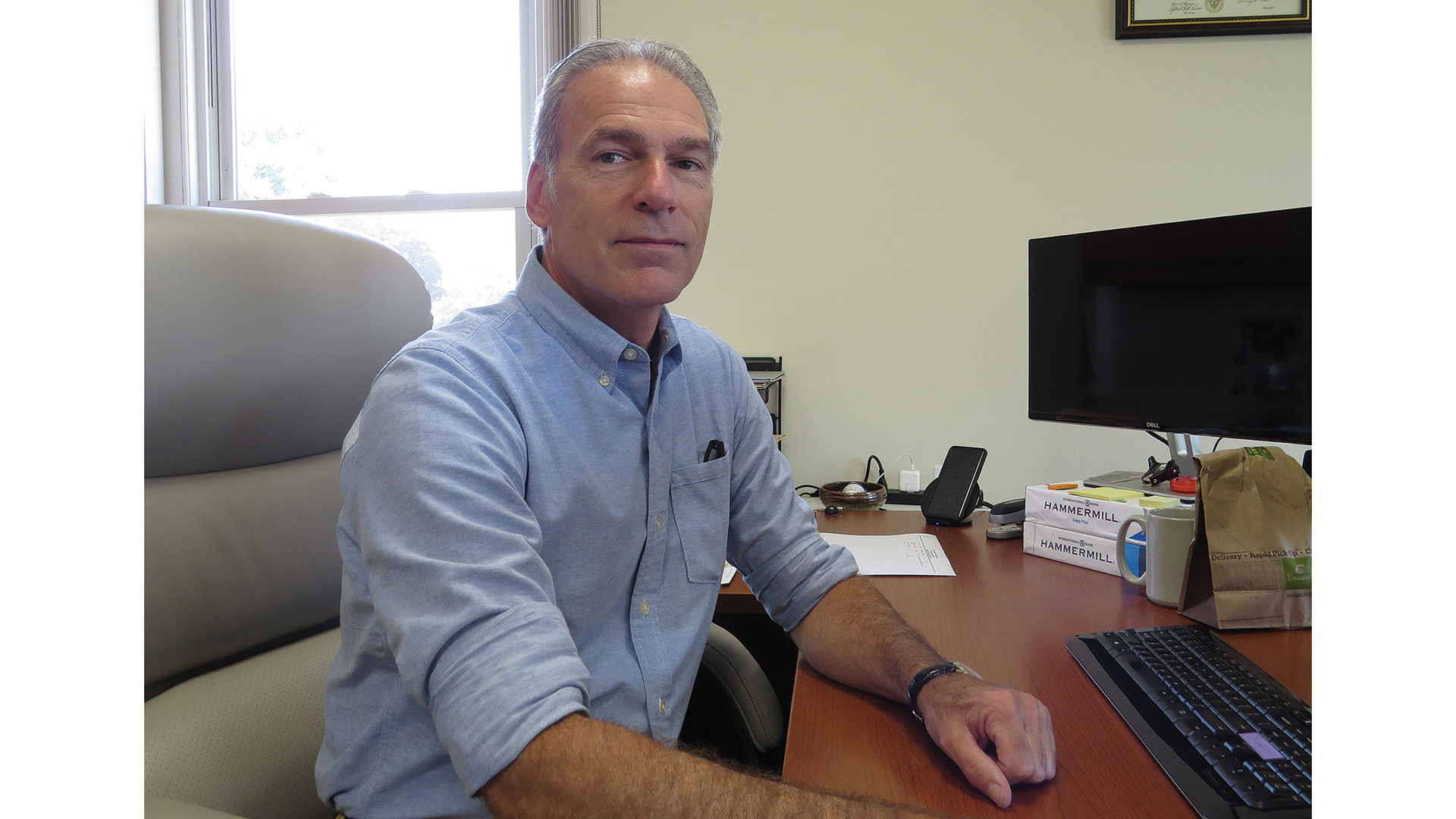
Nick Lapier says a taxing period for all accountants was exacerbated by the federal and state governments constantly “moving the goalposts.”
Julie Quink, CPA, CFE, managing partner of West Springfield-based Burkhart Pizzanelli, P.C., said her firm, like most others, is not simply turning back the clock to late 2019 when it comes to returning to something approaching normal, especially when it comes to how and where business is conducted. She said most employees have returned to the office, but moving forward, there will be even more flexibility when it comes to schedules and working remotely because of what’s been learned over the past 18 months.
“We’re not going to dial back to everyone needing to be here those static hours of 8:30 to 5,” she noted. “I’m a glass-half-full person, and if there is a positive from the past 16 or 17 months that we’ve been dealing with, it’s taught us that we need to be more flexible, more mobile, and more adaptable — and understand that people don’t have to be actually sitting in their offices to get their job done.”
Meanwhile, Lapier told BusinessWest that many accountants, himself included, spent far less time meeting face-to-face with clients in 2020 and early 2021, and he expects that trend to continue.
“This current generation lives in the digital world; they don’t need to see people — they transact their personal and their business life electronically,” he explained. “What has changed because of COVID is that all the prior generations have adopted that same mentality — not 100%, but a heck of a lot more than before the pandemic.”
Howard Cheney, CPA, MST, a partner at Holyoke-based Meyers Brothers Kalicka, P.C. and director of the firm’s Audit and Accounting Services, agreed, while noting, as others did, that the pandemic in many ways accelerated a trend within the industry toward accountants shifting to roles that are more advisory in nature, with a greater focus on the future than the numbers from the past quarter or two.
“I’m a glass-half-full person, and if there is a positive from the past 16 or 17 months that we’ve been dealing with, it’s taught us that we need to be more flexible, more mobile, and more adaptable — and understand that people don’t have to be actually sitting in their offices to get their job done.”
“Accounting has for many years been an historical-look-back kind of thing,” said Cheney, part of an executive committee now managing the firm. “With the speed that people can now get data, they don’t need us to tell them about what happened six months ago; they need us to tell them what’s going to happen six months from now and help them interpret that.”
For this issue and its focus on accounting and tax planning, BusinessWest talked with several CPAs about the never-ending tax season, which still hasn’t ended — many are still dealing with a large number of extensions, many of them resulting from changing tax laws — and what will come next in a sector that has been taxed (yes, that’s an industry term) by this pandemic, and in all kinds of ways.
A Taxing Time
Chris Nadeau, CMA, CPA, CVA said he spent most of the past April — the height of tax season — in Florida. And hardly any of his clients knew he was working and handling their needs from more than 1,000 miles away.
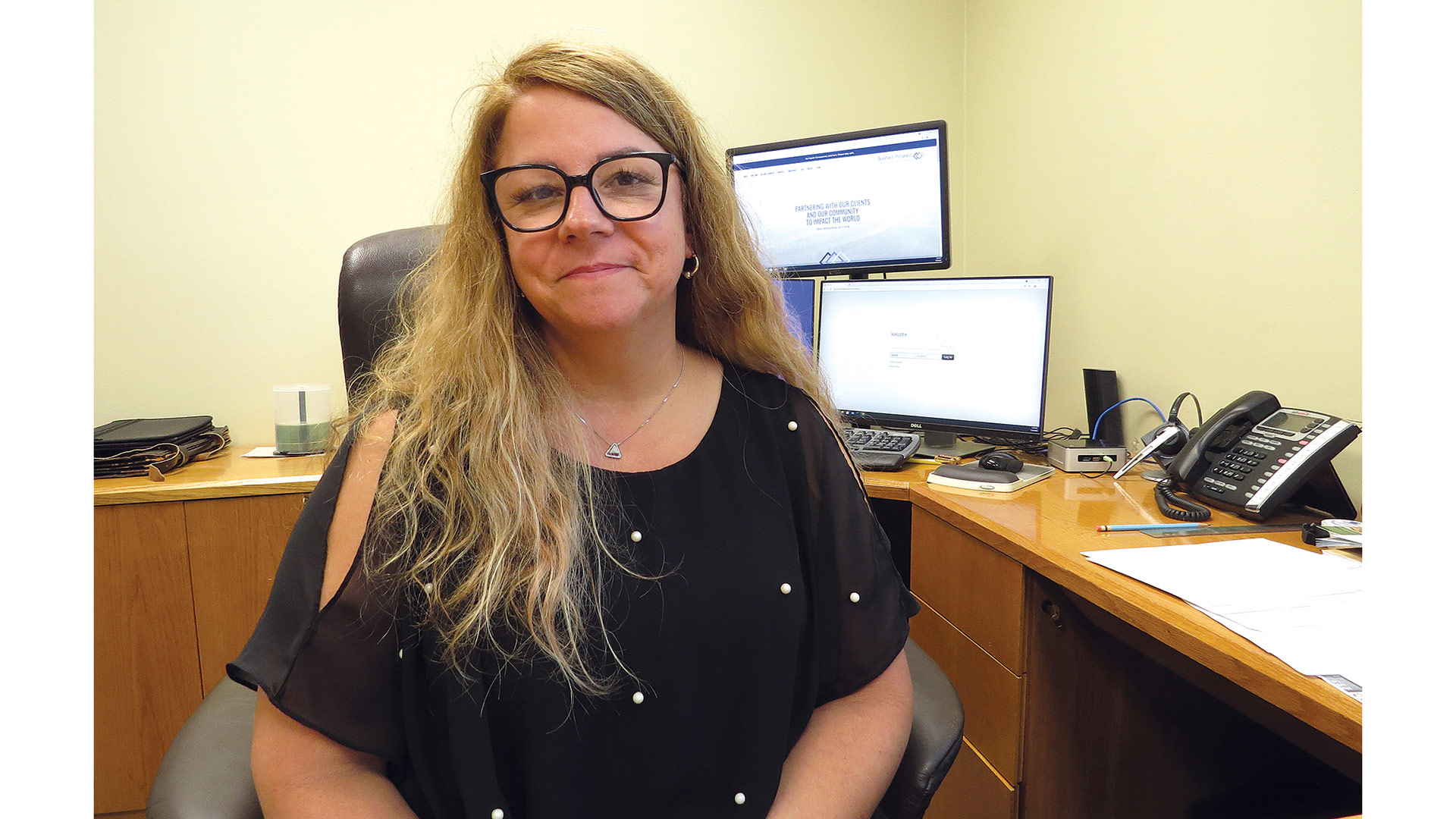
Among the many lessons learned from COVID, Julie Quink says, is the need for more flexibility in when and where people work.
“No one would have known unless I told them,” said Nadeau, a director with Hartford-based Whittlesey, which has offices locally in Holyoke, adding that he would never have considered such a working arrangement prior to the pandemic, but COVID provided ample proof that a CPA doesn’t have to share an area with a client to get the work done.
This anecdote speaks volumes about just how profoundly the landscape has changed in the accounting and tax-planning world over the past year and a half. There have been a number of seismic shifts, and where people work is just one of them, said Nadeau, who has come to his office on Bobala Road in Holyoke only a few times since St. Patrick’s Day of 2020 and was in on this day only to meet with BusinessWest.
Others we spoke with told of similar learning experiences during what has been a year and a half of acting and reacting to everything that has been thrown at them since those days in mid-March of last year when everyone — well, almost everyone — packed up and went home for what they thought would be a few weeks.
As everyone knows, that certainly wasn’t the case, and thus accountants, like all those in business, had to adjust to a new playing field, finding new and sometimes better ways to do things and communicate with clients and fellow team members alike.
“We had to reinvent our processes — how we communicated with the team and how we shared information back and forth, especially when working remotely,” said Lapier of those early days, noting that a three-month extension of the traditional April 15 filing deadline helped spread the work out and was a saving grace.
Bova agreed, noting that his firm of nine employees adjusted to the new landscape out of necessity, with investments in technology, a move to a paperless work process, Zoom meetings between employees and with clients, visits by appointment only, and other steps.
Moving forward, many of these new ways of doing things will continue, with perhaps the biggest being where people work. Indeed, most of the firms we spoke with said some variation of hybrid schedules will become the norm for at least some employees .
“In the future, there will be more hybrid work models, where people work in the office, but they do some work at home — I can see some real potential for that,” said Bova, adding that not all workers have returned to the office, and he’s not sure when they will. “We’re going to explore our options with this; there’s no need to deal with it in the summer — it will be more of a fall issue.”
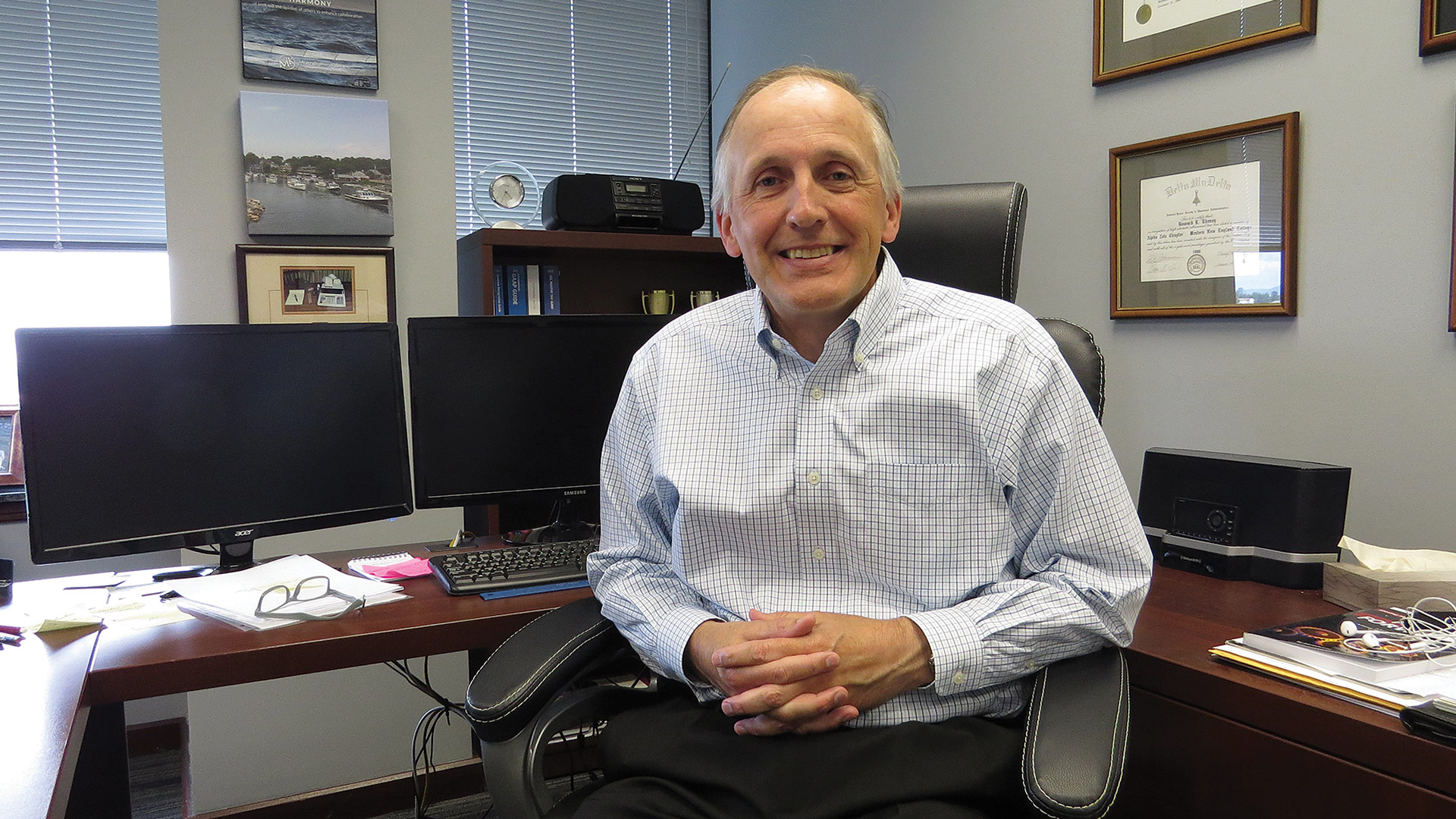
Howard Cheney says the pandemic may have accelerated, or amplified, a shift within accounting to an advisory role, with more emphasis on the future than the past.
Cheney agreed. “We’ve been really flexible as a business with not requiring people to come back just yet,” he said, adding that most at the company have returned to their offices in the PeoplesBank building, but some are still working remotely. “The likelihood is that some kind of hybrid work schedule will be the future for our business.”
Whittlesey recently adopted a hybrid work policy, one that enables people to work “from wherever they will be most efficient,” said Nadeau, adding that most are finding it more efficient to work remotely, and they will continue to do so in the future.
“Some people are not coming in at all, and some are coming in a day or two a week,” he explained. “It’s ‘work where you need to for that day.’ Some employees have actually moved away to another state during COVID, so you could definitely call them ‘remote.’ And it’s been pretty seamless — and flawless.”
And this shift brings a number of benefits for the company, including a possible reduction of its physical footprint, he said, adding that it is likely that the firm will be able to downsize in Holyoke. “At some point down the road, we’ll see what kind of space we’ll need.”
It also means more and better opportunities to recruit top talent to the company because such employees will be able to work from anywhere, including another state, as Nadeau did earlier this year.
“It’s incredibly challenging to recruit people — I think there are fewer accounting students graduating now, and a lot of the people who do graduate end up going to Boston or New York to work for the Big Four firms,” he explained. “So having a remote-work or hybrid-work policy is an added benefit that we can offer, and one that firms are probably going to have to offer if they want to attract top talent.”
As for interaction and communication with clients, while all those we spoke with said face-to-face is still the preferred option, COVID has shown that Zoom and even the telephone work well — and, as with working arrangements, when it comes to interacting with clients, flexibility is the new watchword.
“As we’re talking with our clients, we’re seeing a combination of the two, in-person meetings and those by Zoom and phone — some want meetings in person, and other times, a Zoom meeting or phone call is sufficient,” said Nadeau, noting, as others did, a significant time savings from not physically traveling to see clients, so those at the firm are able to do more with the hours in the day.
Cheney agreed, to some extent, but noted there will always be plenty of room for, and need for, in-person service to clients.
“You don’t want to lose sight of that personal-touch aspect,” he told BusinessWest. “You don’t want to do everything remotely — I don’t think clients want to do everything remotely. But they’re OK with some level [of remote interaction] because we’ve gotten used to it, and they see the efficiency, too.”
Crunching the Numbers
As he tried to put all the changes to tax laws — and changes to the changes — into perspective, Joe Bova recalled the communication he received from the U.S. Small Business Administration concerning PPP loans that came with the header “Interim Final Rules.”
This oxymoron was just one of many challenging measures and changes that CPAs had to make sense of over the past 18 months, a time that Bova described as “a shooting gallery.”
“What’s been different during these past two seasons is that tax-law changes have been happening during tax season,” he told BusinessWest. “And when the PPP loans first came out … the SBA and the Treasury were updating their websites almost daily, and there was a lot of ambiguity in the definitions. We [accountants] were kind of on the front lines because people were calling us, even the banks.
“We all had the same information, which wasn’t clear, so people were calling us to help them interpret these changes,” he went on. “You were in the water on the boat, but you were still building the boat.”
In addition to coping with new legislation and changing rules, there was simply more work to do, said those we spoke with.
“Our workload has gone up probably a good 20% without adding a single client,” said Lapier, listing PPP applications, forgiveness, and audit work, as well as helping companies with SBA loans and the unemployment-tax credit as just some of the additional assignments.
Indeed, on top of all that, there was simply more consulting work to do as companies, especially smaller ones, leaned on their accountants as perhaps never before to help them make what were often very difficult decisions during truly unprecedented times.
Now, with the pandemic easing in some respects, the nature of some of this advisory work is changing, said Quink, noting that many business owners are now able to focus more on the future instead of being consumed by the present.
“We’re seeing a lot of clients that are buying and selling businesses, which is a good sign,” she noted. “And overall, people are starting to think forward now; they were in survival mode for a period of time, and now they’re starting to think forward from a business perspective.”
And there is a lot to think about, she went on, noting that what she and others at her firm are advising clients on is how to adapt to change and navigate challenge — such as a global pandemic.
“We’re talking to our clients that we see as potentially at risk because they don’t have the ability to adapt or they’re not identifying how to adapt,” she explained. “We know that things can change in the blink of an eye; we’ve seen a client, a third-generation business, close because it wasn’t able to look forward and move in a way that still made them competitive. You can’t rest on what you have — you have to be always looking forward, and that’s a hard thing for some of our more mature clients and businesses who have done things they’ve always done, and it’s worked.”
This additional advisory work, as Cheney noted earlier, is merely an acceleration of a trend that has been ongoing for many years now when it comes to clients and what they want and need from their accounting firm, with the accent on the future and how to be prepared for it.
Quink agreed that this shift, if that’s the proper term, has been ongoing for some time now as technology has enabled clients of all kinds to access data more quickly and more easily than ever before.
“We see robots in all aspects of life, and our profession is going to go that way as well,” she explained. “We’re using technology to do the things we’ve always done by hand; we’re now going to have programs that run that data for us. What we’re seeing and what we’re preparing people in our profession for is a shift to more of an advisory-slash-consulting role.”
Bottom Line
For several years now, Quink told BusinessWest, Burkhart Pizzanelli has closed its doors on Fridays. Historically, those Fridays between Memorial Day and Labor Day have served as comp time for those who logged considerable overtime during tax time, and it’s been a time to recharge the batteries.
This year, staff members have needed those Fridays off more than ever, she said, adding that, for many reasons — from all the additional work detailed above to the vacations that haven’t been taken over the past 18 months — there have been many signs of fatigue.
It’s certainly understandable. Indeed, while every business sector has been impacted by COVID, those in accounting were affected in different ways, with more work to do, different work to take on, and learning curves when it came to new and different ways of doing business.
They don’t call it the ‘never-ending tax season’ for nothing. It’s far from over, but in many ways, things are … well, less taxing.
George O’Brien can be reached at [email protected]



